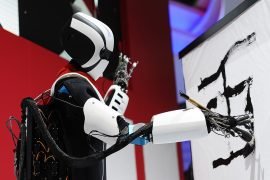In October 1936 the Catalan Government of the previous Republic passed the decree that paved the way to the creation of the Comissariat de Propaganda Política, a pioneering organism in democratic Europe headed by Jaume Miravitlles, who, weeks later, would also serve as the general secretary of the Committee of Antifascist Militias. The cornerstone of the Republic was a project for an emotional, sentimental, romantic lot. These men –despite all the unprecedented advances in women’s merits– staked everything, even life itself. One of the examples that best illustrates this condition is the project of the People’s Olympiad, an alternative to the 1936 Olympic Games.
The host of the 1936 Olympic Games was disputed in 1931 between Barcelona and Berlin. It was finally the German capital that beat up Spain. But, back in 1931, the German political scenario had nothing to do with the one that came to be in1936. After the Great War, the Weimar Republic, amidst an economic and moral crisis, was defeated by Hitler’s National Socialism. Persistent and reactionary values simplified and distorted reality, popularization of slogans, riot squads wreaking havoc and military aesthetics and behaviour would give wings to an Adolph Hitler who, in March 1933, was consolidated as the standard-bearer of savagery. The relentless expression of Nazism was far from spontaneous. Joseph Goebbels, the man who spearheaded the Nazi propaganda machine, was not too fond of improvisation. He was the one who adapted architecture to mass culture. Despite the new German context, which threatened with converting the Games into a blatant glorification of Fascism, the IOC ratified Berlin as the hosting city for the Olympic Games.
The Catalan government, fully aware of the impact of Hitler’s Games across the world, planned an alternative multi-sport event just three months before the official Olympic Games. The idea of the People’s Olympiad was to hold a massive propaganda event in favour of solidarity between peoples, human dignity and peace in the world. Invitations were made to athletes who had been excluded from the Berlin Olympics for racial reasons. The event received the support of the main European sports federations, the United States and Canada. A total of 6,000 athletes were registered and, when the international media had arrived in Barcelona, on 19 July 1936, a few hours before the Games’ opening ceremony, the rumours of a military coup d’état forced the cancellation of the alternative Games.
The Nazi propaganda machinery did not favour dialogue and harmony. They feared a more than likely defeat and backlash to the Fascist tenets. But although Louis was favourite to win, most of the credit went to Schmeling in a memorable face-to-face. This was the first knockout in Louis’ career, which the Nazi regime announced with great fanfare. Schmeling was received and honoured as a hero by the Hitler regime
While Catalonia was getting ready for the People’s Olympiad, in spring 1936, in New York a boxing match was underway at the Yankees’ stadium on 19 June. And this was not any match. No more and no less than Max Schmeling, German, and Joe Louis, the most popular Afro-American talent at the time. The Nazi propaganda machinery did not favour dialogue and harmony. They feared a more than likely defeat and backlash to the Fascist tenets. But although Louis was favourite to win, most of the credit went to Schmeling in a memorable face-to-face. This was the first knockout in Louis’ career, which the Nazi regime announced with great fanfare. Schmeling was received and honoured as a hero by the Hitler regime.
Two years later, on 22 June 1938, on the verge of World War II, came the Schmeling-Louis rematch. On that occasion, the propaganda services carried out a thorough work: on the one hand, President Roosevelt, while on the other, Adolf Hitler publicized their meeting with their respective boxers, thus converting the duel into a clash of world powers: Louis represented democracy values, Schmeling stood for fascism. The Afro-American defeated the German in little more than 2 minutes, and this time it was the Antifascist propaganda that took the opportunity to transform, in a robust show of force, what, in real fact, had been but a mere victory in the boxing ring.
The reality was quite different. Schmeling never succumbed to the Nazi regime and, even, stood up to it. What is more, over the years, the German and the Afro-American cemented a lasting and close relationship. On many occasions, Schmeling rescued Louis from his financial debts and cocaine addiction.
The effects of propaganda spread rapidly like a soothing balm, especially among the Republican front of the Spanish Civil War. As reported by journalist Miquel Andreu (Som Garrigues), in the attick of an old building which served as a hospital in El Soleràs back in the Civil War, there is a drawing referring back to the Louis-Schmeling combat, dated that summer 1938. But the combat had been adulterated by propaganda. The reality was quite different. Schmeling never succumbed to the Nazi regime and, even, stood up to it. What is more, over the years, the German and the Afro-American cemented a lasting and close relationship. On many occasions, Schmeling rescued Louis from his financial debts and cocaine addiction. They both openly regretted the manipulation to which they were submitted, and there are countless images and videos of them both sharing their affection and respect for each other.
Miravitlles, from the Comissariat de Propaganda of the Generalitat, claimed that the cause he defended was way too fair to be able to say the truth. Probably, there was a deeper reason behind that statement. Propaganda is not subjected to reason, but to emotions. Unfortunately, describing it as a cause more or less fair is not dictated by the message issued but rather by which side of the scales has more followers. This is why propaganda is a perverse weapon, because it exploits the weak and endows them with power, which, in turn, returns to the higher spheres that support, directly or indirectly, the propaganda message. This is why well into the 21st century, there are still governments and political parties that enable evangelization of extreme right tenets.



















